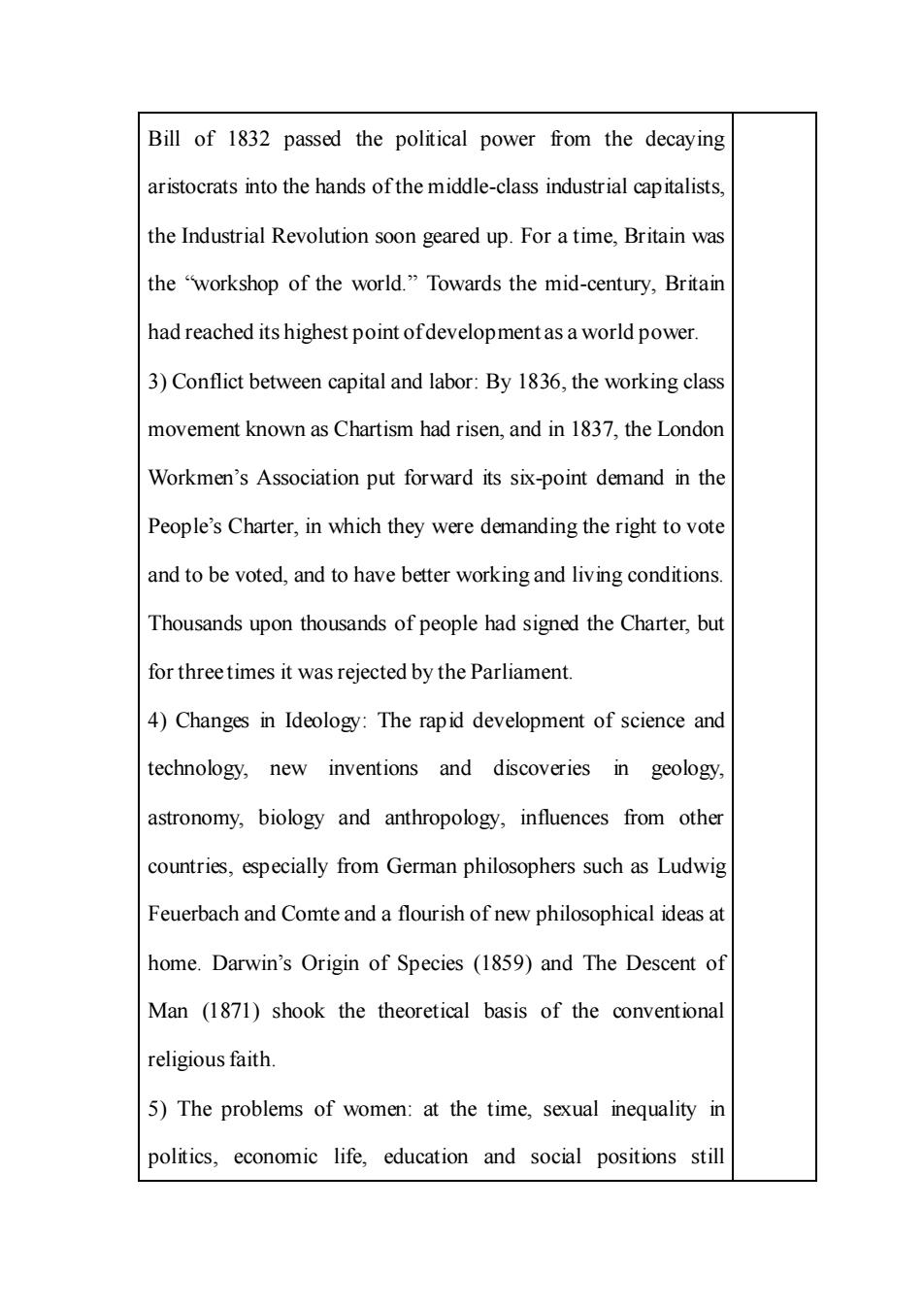正在加载图片...

Bill of 1832 passed the political power from the decaying aristocrats into the hands of the middle-class industrial capitalists. the Industrial Revolution soon geared up.For a time,Britain was the workshop of the world."Towards the mid-century,Britain had reached its highest point ofdevelopment as a world power. 3)Conflict between capital and labor:By 1836,the working class movement known as Chartism had risen,and in 1837,the London Workmen's Association put forward its six-point demand in the People's Charter,in which they were demanding the right to vote and to be voted,and to have better working and living conditions. Thousands upon thousands of people had signed the Charter,but for threetimes it was rejected by the Parliament. 4)Changes in Ideology:The rapid development of science and technology,new inventions and discoveries in geology. astronomy,biology and anthropology,influences from other countries,especially from German philosophers such as Ludwig Feuerbach and Comte and a flourish of new philosophical ideas at home.Darwin's Origin of Species (1859)and The Descent of Man (1871)shook the theoretical basis of the conventional religious faith 5)The problems of women:at the time,sexual inequality in politics,economic life,education and social positions stillBill of 1832 passed the political power from the decaying aristocrats into the hands of the middle-class industrial capitalists, the Industrial Revolution soon geared up. For a time, Britain was the “workshop of the world.” Towards the mid-century, Britain had reached its highest point of development as a world power. 3) Conflict between capital and labor: By 1836, the working class movement known as Chartism had risen, and in 1837, the London Workmen’s Association put forward its six-point demand in the People’s Charter, in which they were demanding the right to vote and to be voted, and to have better working and living conditions. Thousands upon thousands of people had signed the Charter, but for three times it was rejected by the Parliament. 4) Changes in Ideology: The rapid development of science and technology, new inventions and discoveries in geology, astronomy, biology and anthropology, influences from other countries, especially from German philosophers such as Ludwig Feuerbach and Comte and a flourish of new philosophical ideas at home. Darwin’s Origin of Species (1859) and The Descent of Man (1871) shook the theoretical basis of the conventional religious faith. 5) The problems of women: at the time, sexual inequality in politics, economic life, education and social positions still